June 11-13. 2023 — With the ratification of the Kunming-Montreal Global Biodiversity Framework, the world has embarked on a new era of biodiversity conservation. This groundbreaking agreement sets ambitious goals and targets, establishing vital milestones for sustainable approaches to managing biodiversity. Recently, the Asia Forest Cooperation Organization (AFoCO) organized an online workshop titled ‘Kunming-Montreal Global Biodiversity Framework: Synergizing in Achieving Future Conservation Targets‘ from 11-13 June 2023. This workshop brought together experts and participants from AFoCO member countries to explore the key aspects of biodiversity conservation and discuss strategies aligned with the framework. The workshop comprised two keynote addresses and four lecture sessions delivered by eminent experts in the field of biodiversity conservation. The following are the key messages from each session:
- Kunming-Montreal Global Biodiversity Framework (KM-GBF) and Forest-related Targets
Dr. Jamal Annaglyjova, Forest Biodiversity Officer of the Convention on Biological Diversity (CBD) Secretariat, shared valuable insights into the Kunming-Montreal Global Biodiversity Framework. Her address emphasized the forest-related targets outlined within the agreement and stressed the need for concerted efforts to protect and sustainably manage forest ecosystems.
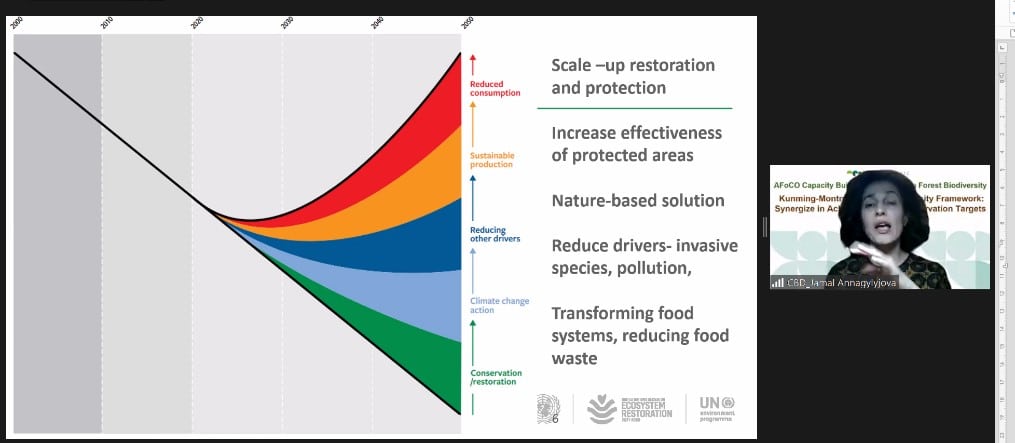
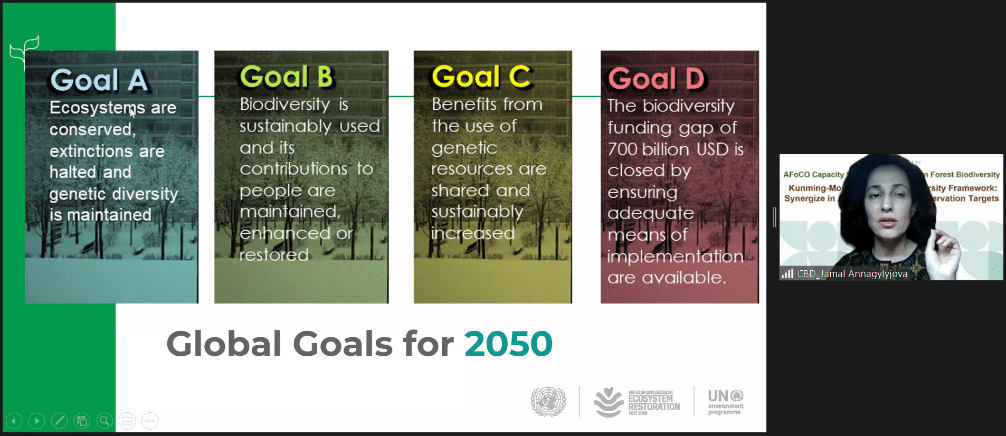
- ITTO/IUCN Guidelines for the Conservation and Sustainable Use of Biodiversity in Tropical Timber Production Forests
Dr. Ma Hwan Ok, Project Manager of International Tropical Timber Organization (ITTO) , discussed the guidelines formulated by ITTO and International Union for Conservation of Nature (IUCN) to promote the conservation and sustainable utilization of biodiversity in tropical timber production forests. He underscored the importance of integrating biodiversity considerations into forest management practices for the long-term viability of these ecosystems. ITTO’s definition of SFM involves avoiding an ‘undue reduction’ in the inherent values of a forest. Logging activities inevitably leads to biodiversity changes. However, achievable conservation outcomes with acceptable costs is the goal of planning in timber harvesting.
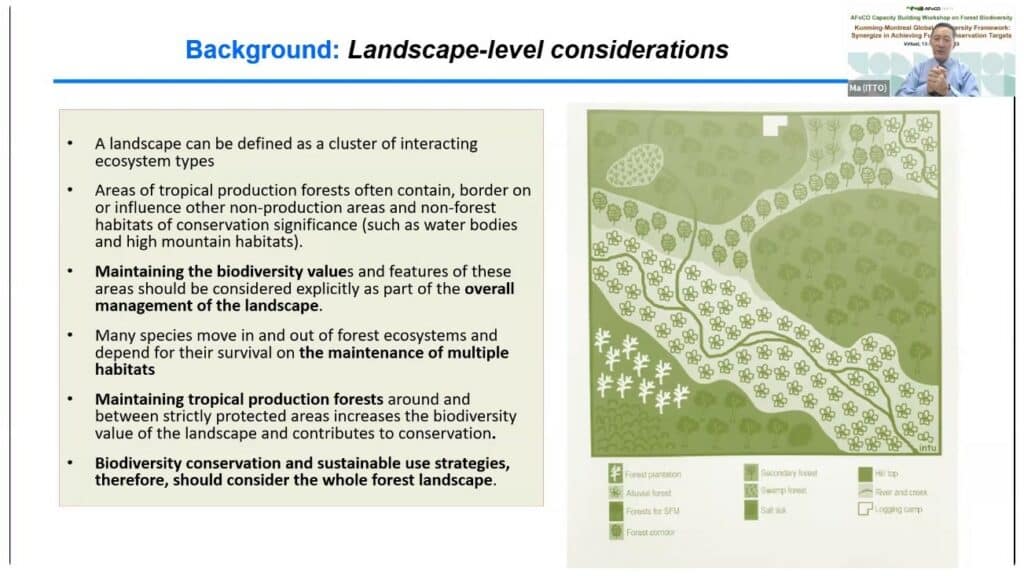
- Integrating Biodiversity Conservation and Sustainable Forest Management: What are the Gaps and Challenges?
Dr. Titiek Setyawati, Senior Researcher of the National Agency for Research and Innovation, Indonesia, highlighted the challenges and gaps in integrating biodiversity conservation with sustainable forest management. She emphasized the need for effective institutional arrangements and proposed potential solutions to address these gaps.
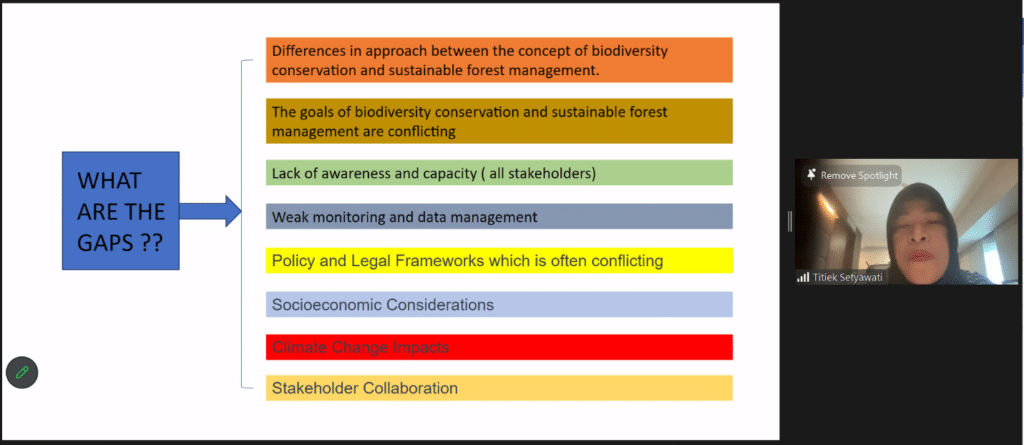
- Reflecting on Key Messages of GBF in Planning the National Forest Biodiversity Strategy and Action Plan
Dr. Goeun Park, Senior Researcher of the National Institute of Forest Science, Republic of Korea, led a session that explored challenges in developing national biodiversity strategies and action plans. She also highlighted the key messages from KM-GBF related to forest sector which include the goal A and nine targets of KM-GBF (Targets 1, 2,3, 7, 8, 10, 12, 18, 19.2).
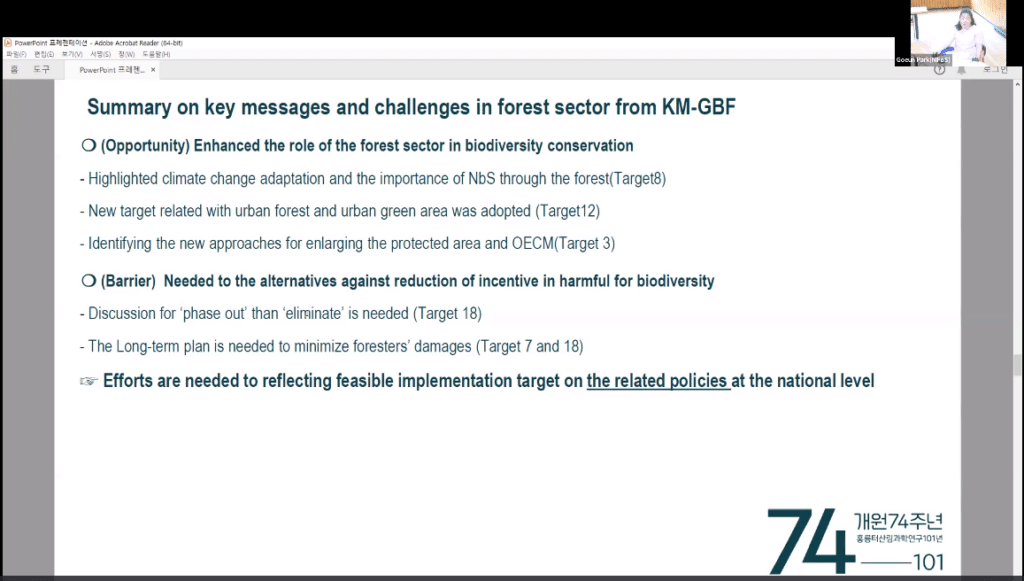
- Data Reporting Tool for MEAs (DaRT)
Dr. Eric Weidmer, DaRT consultant in United Nations Environment Programme (UNEP) Law Division, introduced the Data Reporting Tool for Multilateral Environmental Agreements (DaRT), a crucial mechanism for collecting and analyzing data related to biodiversity conservation. The aim of DaRT is to create a national workspace accessible only by the country itself and to facilitate the organization and process of sharing data and information. By using DaRT, the country can easily retrieve relevant biodiversity information for reporting purposes.
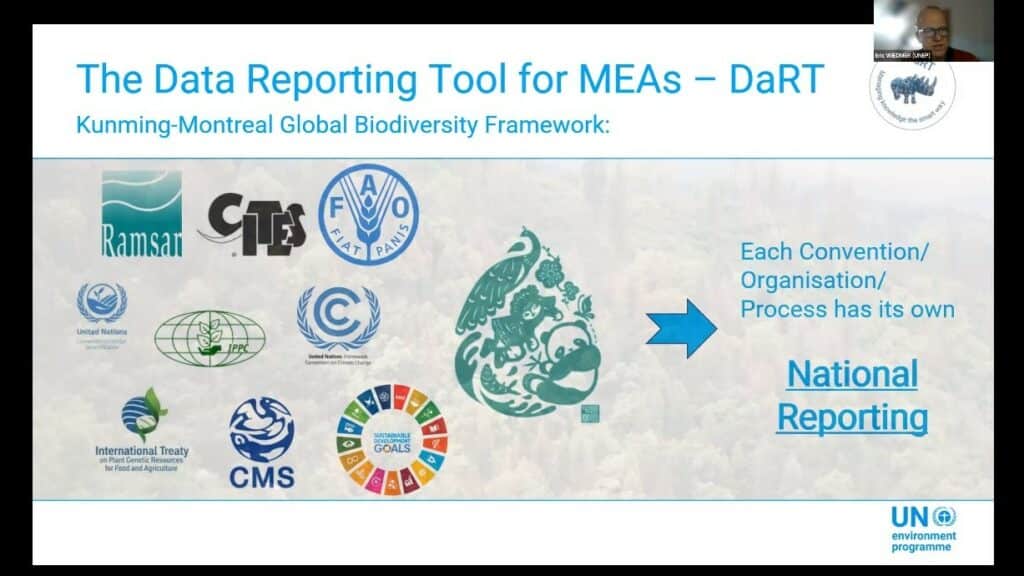
- Promoting Genetic Conservation through Seed Vault
Dr. Hayan Lee, Researcher of the Korea Arboretum and Garden Institute, highlighted the significance of genetic conservation for biodiversity preservation. She explained how seed vaults play a vital role in safeguarding plant diversity, promoting genetic conservation, and contributing to the long-term resilience of ecosystems. She also introduced “Keep Eternally Your Seeds for Future” (KEYS program) by Baekdudaegan Global Seed Vault and AFoCO. This program aims to actively conserve the plant species by storing the seeds. KEYS program also provides various scientific and technical capacity building workshops.
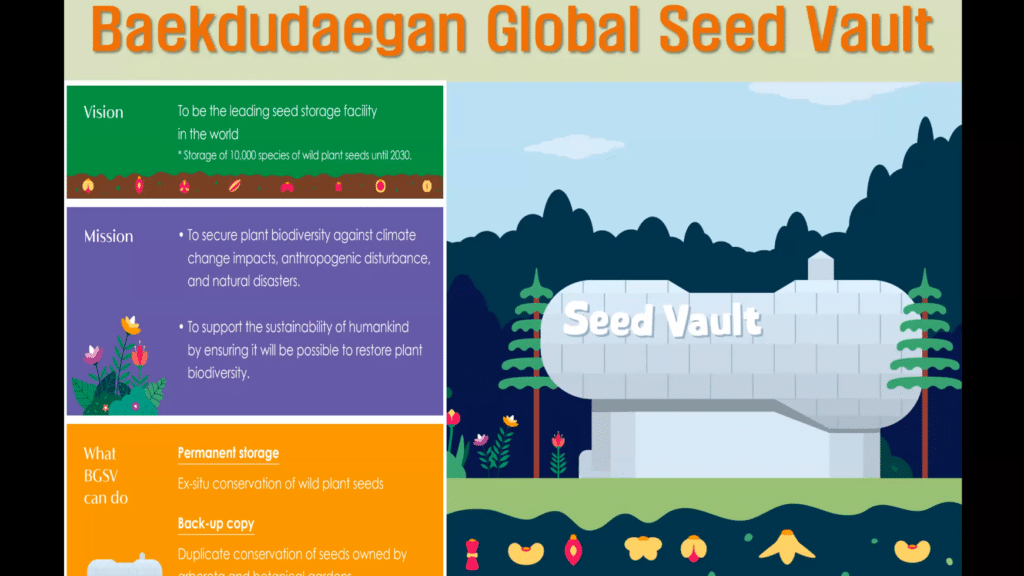
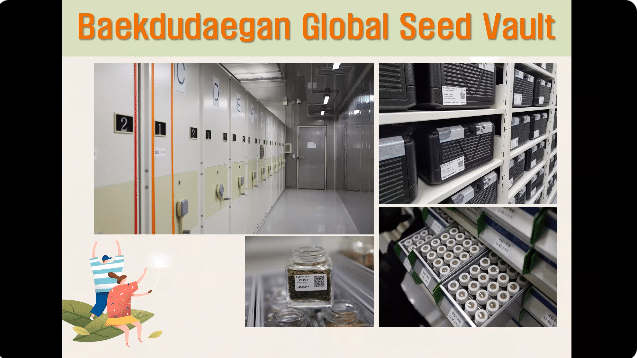
Key Findings and Recommendations
During the workshop’s main cause analysis discussion, participants expressed concerns about the lack of institutional arrangements, land use changes, and climate change as major drivers of biodiversity loss. As response for the core regional problem, the participants recommended promoting sustainable forest management practices and supporting biodiversity in the region as regional main purpose. They emphasized the importance of collective actions to improve the economic balance, to enhance the SFM, and to reduce biodiversity loss.
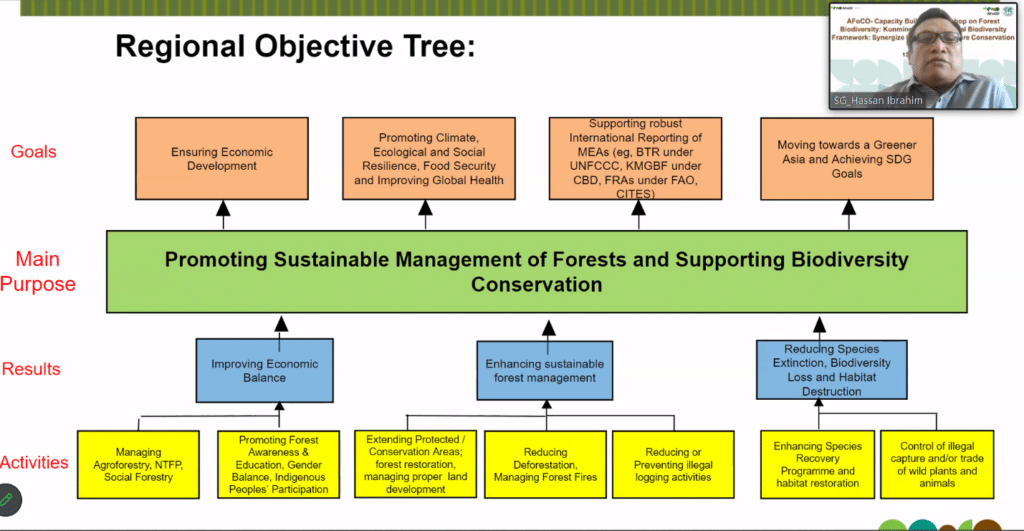
Conclusion
The Kunming-Montreal Global Biodiversity Framework Workshop served as a platform for experts and participants to delve into the challenges and opportunities in biodiversity conservation. By aligning strategies with the framework’s goals and targets, stakeholders can collectively work towards preserving our planet’s rich biodiversity. Through the implementation of sustainable forest management practices, effective institutional arrangements, and a commitment to genetic conservation, we can secure a brighter future for our ecosystems and the countless species that depend on them.
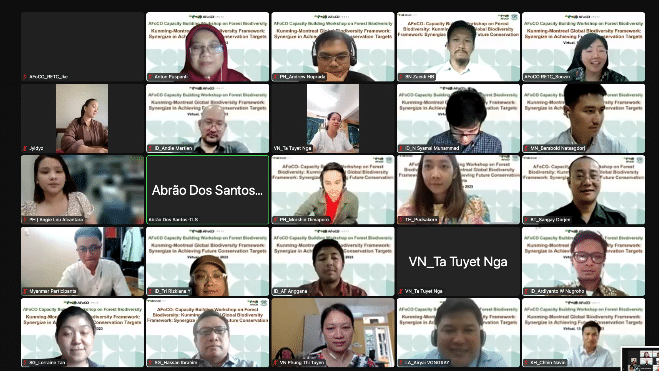
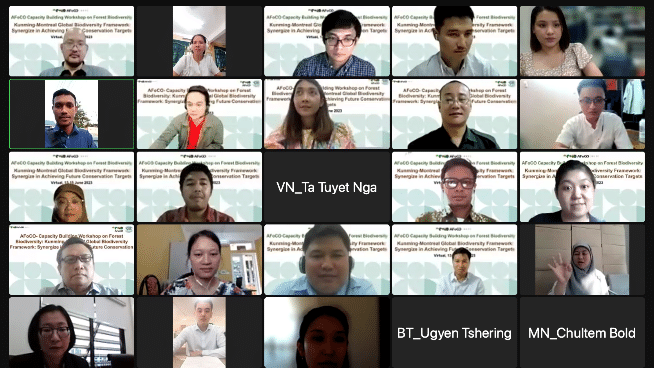
Contribute by Ms. Ike Mediawati, 2023 Fellowship Official from Indonesia

